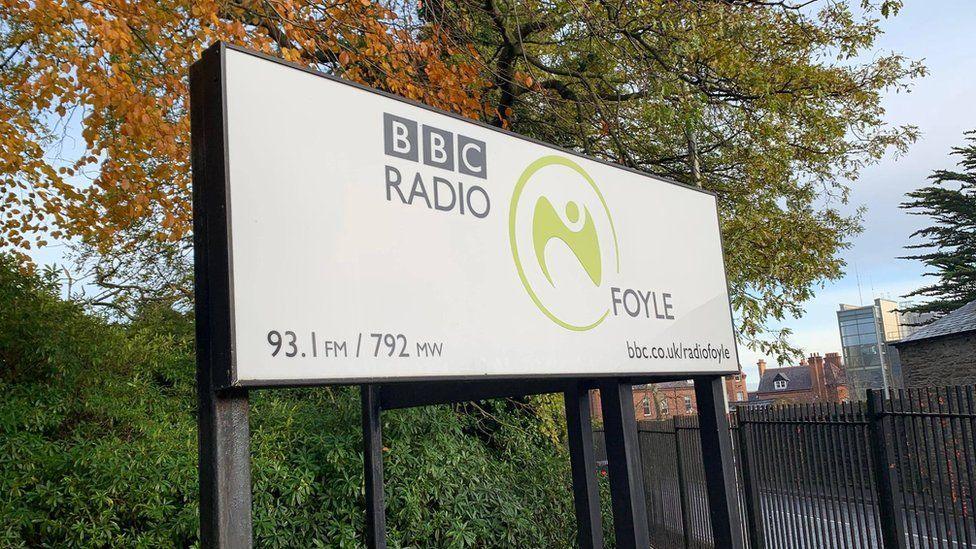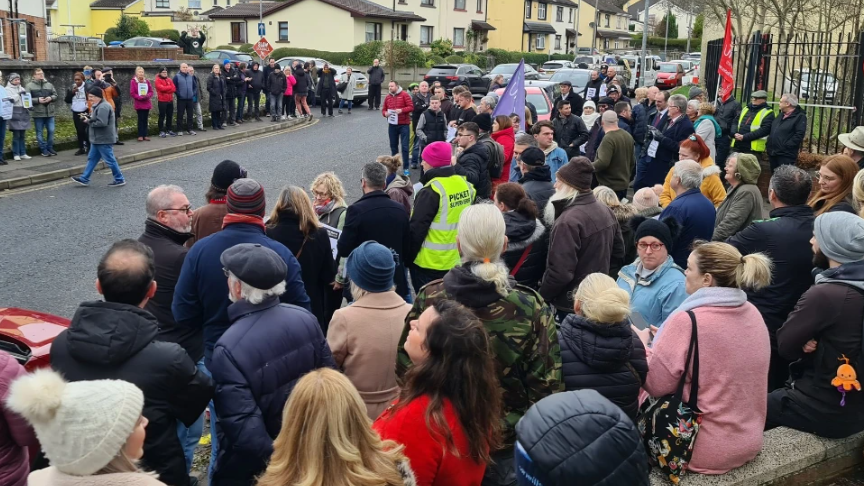BBC breaches licence by scaling back Radio Foyle

In 2023 the BBC cut its two-hour breakfast show on Radio Foyle down to 30 minutes as part of a number of schedule and programme changes
- Published
The BBC breached one of the conditions of its operating licence by cutting news programmes on Radio Foyle, according to communications regulator Ofcom.
It said the BBC had broadcast 300 fewer hours of news and current affairs on Radio Foyle in 2023/24 than it was required to.
The details of the breach are contained in an Ofcom report into the BBC's performance in 2024.
BBC said it will be requesting that the regulator amends the operating licence to reflect changes to Radio Foyle’s output.
The UK's communications regulator publishes annual reports into how the BBC is meeting the needs of viewers and listeners.
Overall, Ofcom said that "the BBC is delivering well against its remit for viewers and listeners".
It said, for instance, that two-thirds of audiences in Northern Ireland are positive towards the BBC.
The regulator also highlighted the success of programmes like Blue Lights and the BAFTA-winning documentary series Once Upon a Time in Northern Ireland.
BBC radio cuts
In 2023, however, the BBC cut its two-hour breakfast show on Radio Foyle down to 30 minutes as part of a number of schedule and programme changes.
The decision attracted a number of protests., external
But in early 2024 the programme - called North West Today - was extended to an hour each weekday from 08:00 to 09:00.

Protestors gathered outside the Radio Foyle station on Northland Road in 2022
However, Ofcom said the BBC had informed it that the cuts meant it had "breached its BBC Radio Foyle news and current affairs condition".
A BBC spokesperson said: “We announced these changes in November 2022 and they were the subject of significant discussion.
"Ofcom approval hadn’t been sought at the time. We set out this mistake clearly in the BBC’s Annual Report and Accounts in July 2024."
The operating licence condition requires the BBC to broadcast at least 1,043 hours of news and current affairs programmes (including repeats) on Radio Foyle.
In June 2024, the Ofcom report said, the BBC told the regulator it had not met that quota.
"In this case, the BBC has missed its quota by 300 hours, achieving only 71% of the required level of output," Ofcom said.
'Internal miscommunication'
According to the regulator's report, the BBC blamed "an internal miscommunication" which meant it "incorrectly believed it would still be able to meet its quota for this condition".
"We consider that the quotas included in the Operating Licence are required to ensure the BBC continues to deliver content that reaches and serves all audiences," Ofcom said.
"This is particularly the case where the quotas are intended to reach and serve specific audience groups, such as in this instance, where Radio Foyle serves audiences in the North West of Northern Ireland," it continued.
"Non-compliance with these quotas is a potentially serious matter."
Ofcom said the BBC would now be submitting a request to amend its operating licence "in relation to the Radio Foyle news and current affairs condition to reflect the current output".
The regulator said that it would assess the changes when it received the BBC's request and then decide what action to take about the breach of the quota.